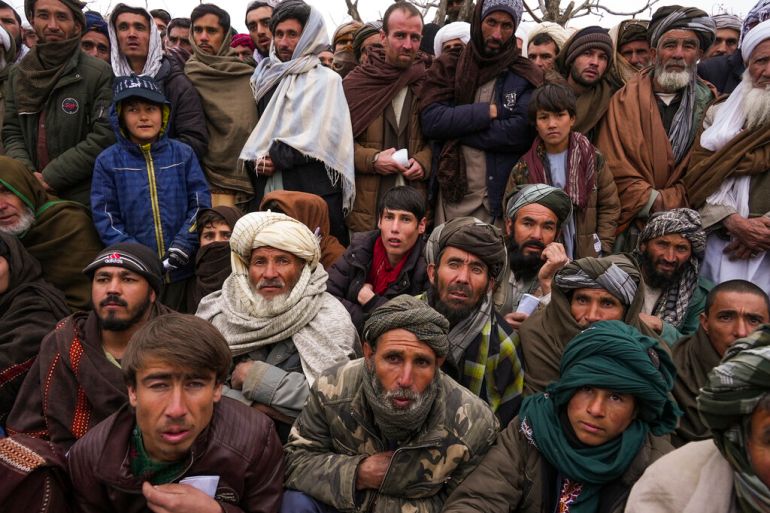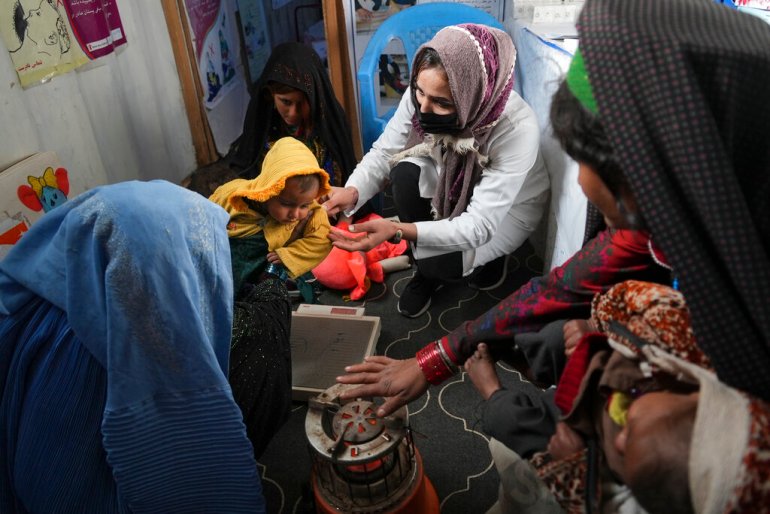US to give additional $308m in humanitarian aid to Afghanistan
Biden administration to channel more funding to humanitarian groups as millions of Afghans face extreme hunger.

The United States will donate an extra $308m in humanitarian aid to Afghanistan, the White House has announced, bringing the total of US aid for Afghanistan and Afghan refugees in the region to nearly $782m since October.
The aid will be channelled through the US Agency for International Development (USAID) to humanitarian organisations providing shelter, healthcare, and emergency food aid, among other services, White House spokesperson Emily Horne said in a statement on Tuesday.
Keep reading
list of 4 itemsMoscow-NATO ties approaching ‘moment of truth’: Russian official
Iran’s foreign minister in Qatar for talks after visiting Oman
Do Kazakhstan’s protests signal an end to the Nazarbayev era?
In addition, the US will provide one million more coronavirus vaccine doses through the World Health Organization’s vaccine cooperative, COVAX, bringing its total contribution to Afghanistan to 4.3 million doses.
The move comes as the United Nations humanitarian agency on Tuesday said it needs nearly $5bn in aid for Afghanistan in 2022. This includes $4.4bn for assistance within Afghanistan, and $623m to support the millions of Afghans sheltering beyond the country’s borders.

More than half the population – about 22 million people – face acute hunger, the UN said, while a further 5.7 million displaced Afghans in five neighbouring countries needed vital relief this year.
“A full-blown humanitarian catastrophe looms. My message is urgent: don’t shut the door on the people of Afghanistan,” said UN Humanitarian Affairs and Emergency Relief Coordinator Martin Griffiths.
An economic crisis accelerated in Afghanistan after the Taliban seized power in August, as the former Western-backed government collapsed and US troops withdrew. International funding to Afghanistan was suspended and billions of dollars of the country’s financial assets abroad, mostly in the US, were frozen.
In the White House statement on Tuesday, Horne said the US “is committed to supporting the Afghan people and we continue to consider all options available to us”. She added, “We stand with the people of Afghanistan.”
Meanwhile, USAID called on the Taliban to allow “all aid workers, especially women … to operate independently and securely” as humanitarian groups look to assist those suffering.
“The United States continues to urge the Taliban to allow unhindered humanitarian access, safe conditions for humanitarians, independent provision of assistance to all vulnerable people, and freedom of movement for aid workers of all genders,” the agency said in a statement.
The decision by the US and the international community not to recognise the Taliban government has created a quandary for Western powers about how to provide enough aid without giving the group legitimacy or putting money directly into its hands.
The Taliban have called on the international community to release funds and help stave off a humanitarian disaster.
State employees, from doctors to teachers and administrative civil servants, have not been paid in months, while banks have restricted how much money account holders can withdraw.
Last month, the US formally exempted American and UN officials doing permitted business with the Taliban from US sanctions to try to maintain the flow of aid to Afghanistan.